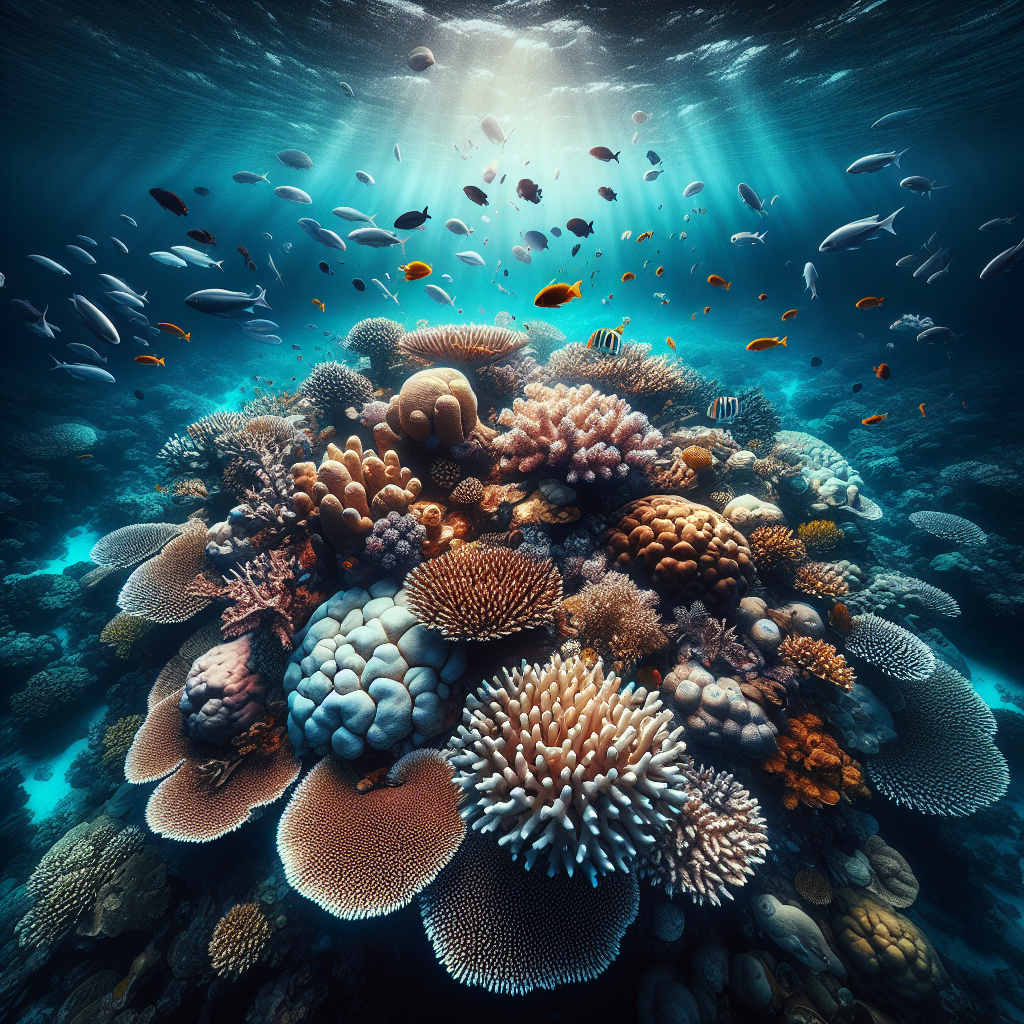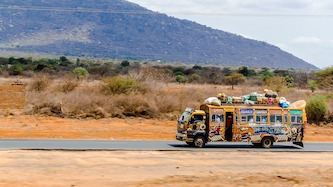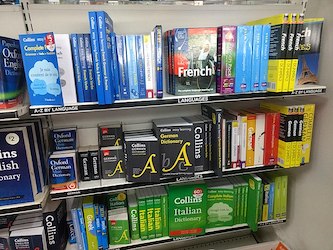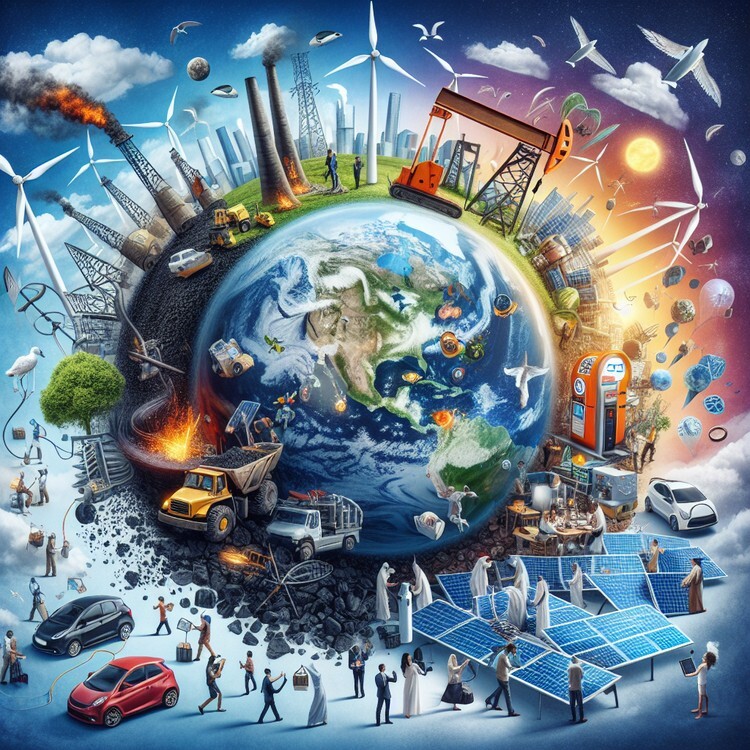Recent studies have shown that climate change is having a serious effect on the Great Barrier Reef. Temperatures in and around this famous ecosystem have reached their highest levels in 400 years. In the last ten years, extreme heat has caused five major coral bleaching events, which highlights the urgent danger facing this natural wonder. A study in the journal Nature calls these rising temperatures a serious threat to the reef and urges scientists to take immediate action against climate change.
The research team, led by Professor Helen McGregor from the University of Wollongong, looked at samples from ancient corals to understand how the environment has changed over time. These coral samples act like history books, showing the conditions in which the corals have lived for centuries. By comparing their findings with historical sea temperature data from the UK, the researchers confirmed that the last decade has been the warmest on record, raising serious concerns about the future of the reef.
Dr. Benjamin Henley, the main researcher, expressed his concern about the situation for the Great Barrier Reef. However, he also pointed out that there is still hope. If countries around the world can work together to limit global warming, there is a chance for the reef and other coral ecosystems to survive. This hope relies on everyone coming together to fight climate change and protect these important marine habitats.
Corals are actually animals, not plants, and they need to live within a certain temperature range. They depend on a relationship with algae for food and color. When sea temperatures get too high, corals expel their algae, which leads to bleaching. While some bleached corals can recover, long periods of heat stress can stop this recovery, changing the reef’s ecosystem dramatically. Dr. Henley described bleached corals as looking unattractive, as they eventually get covered by other algae, turning them brown. Since the Great Barrier Reef is a UNESCO World Heritage site, there is hope that this research will lead to it being labeled as “endangered,” which would highlight the seriousness of the situation.
Original news source: 400-year record heat threat to Great Barrier Reef (BBC)
🎧 Listen:
Slow
Normal
Fast
📖 Vocabulary:
| 1 | ecosystem | A community of living things and their environment |
| 2 | bleaching | The process of losing color, often due to stress or damage |
| 3 | urgent | Needing immediate attention or action |
| 4 | samples | Small parts taken to show what the whole is like |
| 5 | historical | Related to past events or times |
| 6 | decade | A period of ten years |
| 7 | concerns | Worries or fears about something |
| 8 | global warming | The increase in Earth’s average temperature |
| 9 | marine | Related to the sea or ocean |
| 10 | habitats | Places where animals or plants naturally live |
| 11 | algae | Simple plants that live in water and provide food for corals |
| 12 | expel | To force something out or away |
| 13 | stress | Pressure or tension caused by difficult situations |
| 14 | unattractive | Not pleasing to look at |
| 15 | UNESCO | An international organization that protects cultural and natural sites |
Group or Classroom Activities
Warm-up Activities:
– CHARADES
Instructions: Divide the class into small groups. Each group will take turns picking a word or phrase related to the article (e.g., “coral bleaching,” “climate change,” “Great Barrier Reef”). One member from the group will act out the word or phrase without speaking while the others guess what it is. Set a timer for each round to keep the game moving.
– OPINION POLL
Instructions: Prepare a list of statements related to climate change and the Great Barrier Reef (e.g., “Climate change is the biggest threat to the environment”). Have students move to different corners of the room based on their opinion (strongly agree, agree, disagree, strongly disagree). Afterward, invite a few students to share their thoughts and reasons for their positions.
– HEADLINE CREATION
Instructions: Have students work in pairs to create catchy headlines for the article. They should aim to summarize the main points while making it engaging. Once they have crafted their headlines, each pair will share their best one with the class, and the group can vote on the most effective headline.
– MIND MAP
Instructions: On a large piece of paper or whiteboard, write “Great Barrier Reef and Climate Change” in the center. Students will work in small groups to brainstorm and add related concepts, facts, and terminology from the article, creating a mind map. Each group will present their additions to the class.
– SYNONYM CHALLENGE
Instructions: Provide students with a list of key vocabulary words from the article (e.g., “urgent,” “threat,” “ecosystem”). In pairs, they will take turns giving synonyms for each word without repeating any previously mentioned synonyms. The goal is to see how many synonyms they can come up with in a set time (e.g., 3 minutes).
🤔 Comprehension Questions:
1. What recent findings have studies revealed about the Great Barrier Reef and climate change?
2. How have temperatures around the Great Barrier Reef changed over the past 400 years?
3. What significant events have occurred in the last ten years that indicate a threat to the coral?
4. Who led the research team that studied the ancient corals, and what was their main goal?
5. How do ancient coral samples help scientists understand environmental changes over time?
6. What did Dr. Benjamin Henley say about the possibility of saving the Great Barrier Reef?
7. Why are corals described as animals rather than plants, and what do they need to survive?
8. What could happen to the Great Barrier Reef if it were labeled as “endangered” by UNESCO?
Go to answers ⇩
🎧✍️ Listen and Fill in the Gaps:
Recent studies have shown that climate change is having a serious effect on the Great Barrier Reef. Temperatures in and around this famous (1)______ have reached their highest levels in 400 years. In the last ten years, extreme heat has caused five major coral bleaching (2)______, which highlights the urgent danger facing this natural (3)______. A study in the journal Nature calls these (4)______ temperatures a serious threat to the reef and urges scientists to take immediate action against climate change.
The research team, led by Professor Helen McGregor from the University of Wollongong, looked at samples from ancient (5)______ to understand how the environment has changed over time. These coral samples act like (6)______ books, showing the conditions in which the corals have lived for centuries. By (7)______ their findings with historical sea temperature data from the UK, the researchers (8)______ that the last decade has been the warmest on record, raising serious concerns about the future of the reef.
Dr. Benjamin Henley, the main researcher, expressed his concern about the situation for the (9)______ Barrier Reef. However, he also pointed out that there is still hope. If countries around the world can work together to limit global warming, there is a chance for the reef and other (10)______ ecosystems to survive. This hope relies on everyone coming together to fight climate change and protect these important marine habitats.
Corals are actually animals, not plants, and they need to live within a certain (11)______ range. They (12)______ on a relationship with algae for food and color. When sea temperatures get too high, corals expel their algae, which leads to bleaching. While some bleached corals can (13)______, long periods of heat stress can stop this recovery, changing the reef’s ecosystem dramatically. Dr. Henley described bleached corals as looking unattractive, as they eventually get covered by other algae, turning them brown. Since the Great (14)______ Reef is a (15)______ World Heritage site, there is hope that this research will lead to it being labeled as “endangered,” which would highlight the (16)______ of the situation.
Go to answers ⇩
💬 Discussion Questions:
Students can ask a partner these questions, or discuss them as a group.
1. What is your opinion on climate change? Do you think it is a serious issue? Why or why not?
2. Have you ever visited a coral reef or any similar natural wonder? What was your experience like?
3. How would you feel if you saw a coral reef in danger because of climate change?
4. Do you think it’s important for scientists to study ancient corals? Why or why not?
5. What are some ways that individuals can help protect the environment and combat climate change?
6. How do you think global cooperation could help save ecosystems like the Great Barrier Reef?
7. What is your favorite marine animal, and how do you think climate change affects it?
8. Do you believe that people are aware enough of the dangers facing the Great Barrier Reef? Why or why not?
9. How would you feel if the Great Barrier Reef were to be labeled as “endangered”?
10. Do you think that education about climate change should be a bigger part of school curriculums? Why?
11. What do you think is the most surprising fact about corals that you learned from the article?
12. How would you react if a friend said they didn’t believe in climate change?
13. Do you like spending time in nature? How do you think climate change impacts your favorite outdoor activities?
14. What is a small change you could make in your life to help the environment?
15. How do you think future generations will view our actions regarding climate change today?
Individual Activities
📖💭 Vocabulary Meanings:
Match each word to its meaning.
Words:
1. ecosystem
2. bleaching
3. urgent
4. samples
5. historical
6. decade
7. concerns
8. global warming
9. marine
10. habitats
11. algae
12. expel
13. stress
14. unattractive
15. UNESCO
Meanings:
(A) Related to the sea or ocean
(B) Small parts taken to show what the whole is like
(C) Related to past events or times
(D) Places where animals or plants naturally live
(E) Pressure or tension caused by difficult situations
(F) Not pleasing to look at
(G) The process of losing color, often due to stress or damage
(H) A community of living things and their environment
(I) Simple plants that live in water and provide food for corals
(J) An international organization that protects cultural and natural sites
(K) Needing immediate attention or action
(L) The increase in Earth’s average temperature
(M) A period of ten years
(N) To force something out or away
(O) Worries or fears about something
Go to answers ⇩
🔡 Multiple Choice Questions:
1. What recent trend has been observed in the Great Barrier Reef?
(a) Decreasing coral populations
(b) Increased marine biodiversity
(c) More tourist visits
(d) Rising temperatures
2. Who led the research team studying the Great Barrier Reef?
(a) Dr. Benjamin Henley
(b) Professor Helen McGregor
(c) Dr. Jane Smith
(d) Professor Alan Brown
3. What do ancient coral samples help scientists understand?
(a) Changes in environmental conditions over time
(b) The diet of marine animals
(c) The history of human activities
(d) The types of algae present
4. What has caused five major coral bleaching events in the last decade?
(a) Pollution
(b) Extreme heat
(c) Overfishing
(d) Coastal development
5. What is the main concern expressed by Dr. Benjamin Henley regarding the Great Barrier Reef?
(a) The impact of tourism on marine life
(b) The loss of species diversity
(c) The potential for coral ecosystems to survive
(d) The increase in plastic waste
6. What do corals depend on for food and color?
(a) Sunlight alone
(b) Other marine animals
(c) Seaweed
(d) A relationship with algae
7. How can bleached corals appear over time?
(a) They can turn brown due to algae covering them
(b) They become more colorful
(c) They grow larger
(d) They attract more fish
8. What designation could the Great Barrier Reef receive to emphasize its endangered status?
(a) National Park
(b) Marine Protected Area
(c) UNESCO World Heritage site
(d) Wildlife Sanctuary
Go to answers ⇩
🕵️ True or False Questions:
1. Professor Helen McGregor from the University of Wollongong led a research team that studied modern coral samples to track environmental changes.
2. The Great Barrier Reef is a UNESCO World Heritage site, and there is no potential for it to be labeled as “endangered” to highlight the seriousness of its situation.
3. Dr. Benjamin Henley, the main researcher, believes there is no hope for the Great Barrier Reef if countries work together to combat global warming.
4. The research confirmed that the last ten years have been the warmest on record, raising concerns about the reef’s future.
5. A study published in the journal Nature emphasizes that rising temperatures pose a serious threat to the Great Barrier Reef.
6. Corals are animals that rely on a relationship with algae for food and color, and high sea temperatures can cause them to expel these algae, leading to bleaching.
7. Over the past decade, extreme cold has led to five major coral bleaching events in the reef.
8. Climate change is significantly impacting the Great Barrier Reef, with temperatures reaching their highest levels in 400 years.
Go to answers ⇩
📝 Write a Summary:
Write a summary of this news article in two sentences.
Check your writing now with the best free AI for English writing!
Writing Questions:
Answer the following questions. Write as much as you can for each answer.
Check your answers with our free English writing assistant!
1. What are the main effects of climate change on the Great Barrier Reef according to the article?
2. How have researchers studied the history of the corals in the Great Barrier Reef?
3. What did Dr. Benjamin Henley say about the future of the Great Barrier Reef?
4. Why are corals considered animals and what do they need to survive?
5. What could happen if the Great Barrier Reef is labeled as “endangered”?
✅ Answers
🤔✅ Comprehension Question Answers:
1. What recent findings have studies revealed about the Great Barrier Reef and climate change?
Recent studies have shown that climate change is seriously affecting the Great Barrier Reef, with temperatures reaching their highest levels in 400 years and causing major coral bleaching events.
2. How have temperatures around the Great Barrier Reef changed over the past 400 years?
Temperatures in and around the Great Barrier Reef have reached their highest levels in 400 years, indicating a significant increase in warmth.
3. What significant events have occurred in the last ten years that indicate a threat to the coral?
In the last ten years, extreme heat has caused five major coral bleaching events, highlighting the urgent danger to the reef.
4. Who led the research team that studied the ancient corals, and what was their main goal?
The research team was led by Professor Helen McGregor from the University of Wollongong, and their main goal was to understand how the environment around the Great Barrier Reef has changed over time.
5. How do ancient coral samples help scientists understand environmental changes over time?
Ancient coral samples act like history books, showing scientists the conditions in which the corals lived for centuries, allowing them to compare past environmental conditions with current data.
6. What did Dr. Benjamin Henley say about the possibility of saving the Great Barrier Reef?
Dr. Benjamin Henley expressed concern about the situation but also mentioned that there is hope if countries work together to limit global warming.
7. Why are corals described as animals rather than plants, and what do they need to survive?
Corals are described as animals because they rely on a relationship with algae for food and color, which means they need to live within a specific temperature range to survive.
8. What could happen to the Great Barrier Reef if it were labeled as “endangered” by UNESCO?
If the Great Barrier Reef were labeled as “endangered” by UNESCO, it would highlight the seriousness of the situation and potentially lead to increased efforts to protect it.
Go back to questions ⇧
🎧✍️✅ Listen and Fill in the Gaps Answers:
(1) ecosystem
(2) events
(3) wonder
(4) rising
(5) corals
(6) history
(7) comparing
(8) confirmed
(9) Great
(10) coral
(11) temperature
(12) depend
(13) recover
(14) Barrier
(15) UNESCO
(16) seriousness
Go back to questions ⇧
📖💭✅ Vocabulary Meanings Answers:
1. ecosystem
Answer: (H) A community of living things and their environment
2. bleaching
Answer: (G) The process of losing color, often due to stress or damage
3. urgent
Answer: (K) Needing immediate attention or action
4. samples
Answer: (B) Small parts taken to show what the whole is like
5. historical
Answer: (C) Related to past events or times
6. decade
Answer: (M) A period of ten years
7. concerns
Answer: (O) Worries or fears about something
8. global warming
Answer: (L) The increase in Earth’s average temperature
9. marine
Answer: (A) Related to the sea or ocean
10. habitats
Answer: (D) Places where animals or plants naturally live
11. algae
Answer: (I) Simple plants that live in water and provide food for corals
12. expel
Answer: (N) To force something out or away
13. stress
Answer: (E) Pressure or tension caused by difficult situations
14. unattractive
Answer: (F) Not pleasing to look at
15. UNESCO
Answer: (J) An international organization that protects cultural and natural sites
Go back to questions ⇧
🔡✅ Multiple Choice Answers:
1. What recent trend has been observed in the Great Barrier Reef?
Answer: (d) Rising temperatures
2. Who led the research team studying the Great Barrier Reef?
Answer: (b) Professor Helen McGregor
3. What do ancient coral samples help scientists understand?
Answer: (a) Changes in environmental conditions over time
4. What has caused five major coral bleaching events in the last decade?
Answer: (b) Extreme heat
5. What is the main concern expressed by Dr. Benjamin Henley regarding the Great Barrier Reef?
Answer: (c) The potential for coral ecosystems to survive
6. What do corals depend on for food and color?
Answer: (d) A relationship with algae
7. How can bleached corals appear over time?
Answer: (a) They can turn brown due to algae covering them
8. What designation could the Great Barrier Reef receive to emphasize its endangered status?
Answer: (c) UNESCO World Heritage site
Go back to questions ⇧
🕵️✅ True or False Answers:
1. Professor Helen McGregor from the University of Wollongong led a research team that studied modern coral samples to track environmental changes. (Answer: False)
2. The Great Barrier Reef is a UNESCO World Heritage site, and there is no potential for it to be labeled as “endangered” to highlight the seriousness of its situation. (Answer: False)
3. Dr. Benjamin Henley, the main researcher, believes there is no hope for the Great Barrier Reef if countries work together to combat global warming. (Answer: False)
4. The research confirmed that the last ten years have been the warmest on record, raising concerns about the reef’s future. (Answer: True)
5. A study published in the journal Nature emphasizes that rising temperatures pose a serious threat to the Great Barrier Reef. (Answer: True)
6. Corals are animals that rely on a relationship with algae for food and color, and high sea temperatures can cause them to expel these algae, leading to bleaching. (Answer: True)
7. Over the past decade, extreme cold has led to five major coral bleaching events in the reef. (Answer: False)
8. Climate change is significantly impacting the Great Barrier Reef, with temperatures reaching their highest levels in 400 years. (Answer: True)
Go back to questions ⇧















